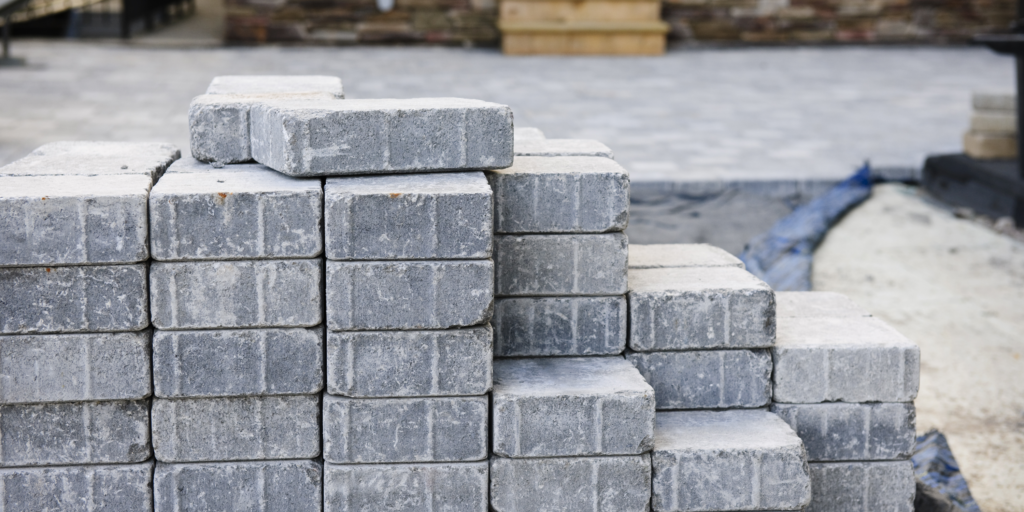Welcome to our comprehensive commercial paving materials guide! Choosing the proper material is vital when building or renovating pavement. The quality and durability of your paving may make or break your property’s beauty and functionality.
We will investigate commercial pavement materials and their options. We include affordable asphalt, durable concrete, attractive brick, and adaptable pavers. Our maintenance advice for each material will help your investment last.
The importance of choosing the right material for your project
Selecting the proper material for business paving is vital. Your project’s beauty, durability, and cost depend on the material you choose.
Traffic volume should be considered when choosing paving materials. Asphalt may be best for parking lots and streets with considerable vehicle traffic. Flexible, it can resist heavy weights without splitting or breaking.
However, concrete may be more resilient and long-lasting. With proper care, concrete can survive harsh weather and last long.

Brick pavers can enhance your project’s attractiveness. They are durable and come in many colors and patterns to complement any outdoor setting.
For customization and versatility, interlocking concrete pavers offer unlimited possibilities. These pavers let you build custom designs that match your vision with their forms, sizes, colors, and patterns.
Budget limits should be considered when choosing commercial pavement material. Although asphalt is cheaper to install than concrete or brick pavers,
Maintenance should also influence your choice. Asphalt needs sealing every few years to look and last. Concrete requires occasional cleaning but less care over time.
Asphalt: The most common and affordable option
Asphalt is the most popular commercial paving material. For an excellent reason! It is cost-effective and has several benefits, making it a great choice for many applications.
Cheap asphalt is a major factor in its popularity. Asphalt is cheaper than concrete or brick yet still durable and functional.
Asphalt is cheap and easy to install and repair. This allows for speedy repairs if excessive traffic or weather causes damage, without disturbing business operations.
Flexibility is another benefit of asphalt business paving. It adapts well to many climates and terrains, making it perfect for many tasks.
Asphalt’s skid resistance improves property safety. The smooth surface gives vehicles maximum grip in wet or slippery situations.
Regular sealcoating and crack sealing can preserve asphalt pavement for years.
Asphalt’s cost, durability, and versatility make it a popular choice for commercial paving projects across sectors!
Commercial paving projects benefit from asphalt’s durability and affordability!
Concrete: A durable and long-lasting choice
Industrial paving materials like concrete are popular. The durable design can withstand high traffic and harsh weather. Concrete is a durable parking lot, sidewalk, and driveway material.
Durability is a major benefit of using concrete for commercial projects. Concrete is great for loading docks and industrial facilities because it can withstand huge loads without cracking. It lasts longer than conventional paving materials, requiring less maintenance and repairs.
In addition to endurance, concrete is versatile in design. You may match your home’s style with different finishes and colors. Concrete offers unlimited possibilities, from stamped designs that replicate genuine stone to exposed aggregate for texture and visual appeal.
Another benefit of concrete is its low maintenance. Concrete requires less maintenance than asphalt or brick, which may need occasional repair owing to wear and tear. It will last longer and look better with regular water and mild detergent washing.
Concrete is a good commercial pavement material. Its durability, design versatility, and low maintenance make it a good choice for projects that need long-lasting results without sacrificing aesthetics.
Brick: Adding aesthetic appeal to your paving project
Brick is a popular commercial paving material that instantly improves any project’s aesthetics. Brick combines beauty and durability with its timeless appeal and versatility.
Brick paving adds charm and warmth to any place. Bricks’ natural hues and textures make them beautiful and match many architectural styles.
Bricks’ many forms, sizes, and patterns provide unlimited design options. Brick pavers can be customized with herringbone, basket weave, or color patterns.
Brick is strong and durable as well as attractive. Its durability to harsh weather and heavy foot traffic has made it a viable building material for ages. This makes it ideal for commercial driveways and walkways.
Brick requires occasional washing and sealing, although it takes less upkeep than other materials. Due to its endurance, your investment will last for years without wear and tear.
Next time you pave a commercial area, try using bricks. They will be appealing and function well over time!
Pavers: A versatile and customizable option
Pavers are versatile and customizable commercial pavement materials. These interlocking pieces can be created from concrete, clay, or natural stone, giving you unlimited alternatives.
Pavers’ capacity to construct elaborate patterns and designs is a major benefit. Pavers can create your desired herringbone or geometric pattern.
Pavers are both attractive and durable. They resist cracking and weathering from severe traffic and weather. They are ideal for parking lots and driveways given their frequent traffic.
Pavers are easy to maintain. You can remove and replace a damaged or stained piece without harming the rest of the paved area. Sweeping and power washing will keep your paver installation looking great for years.
Pavers make it easier to access utility wires beneath a paved surface for future repairs than asphalt or concrete.
Pavers offer variety and customization when choosing commercial pavement choices. Their durability, low maintenance, and unlimited design options make them a great choice for business spaces that need long-lasting beauty!
Factors to consider when selecting a paving material
Choosing the correct paving material for your business project involves numerous crucial factors. Since each material has its own advantages, it’s important to weigh them before choosing.
Your project’s durability should be considered. Asphalt and concrete are strong and durable, making them excellent for high-traffic areas or heavy machines. Due to its fragility, brick and pavers may be ideal for lighter use or decoration.
Another consideration is the aesthetics of your paved surface. Classic brick may enhance any space’s appearance. Concrete can be colored and finished to match your style while remaining durable. Pavers offer unlimited design options with their shapes, sizes, patterns, and textures.
When choosing paving materials, cost is also crucial. If budget is an issue, asphalt is cheaper than concrete or brick. It’s important to evaluate both upfront and long-term maintenance costs because some materials need more regular repairs or replacements.
By carefully evaluating durability, aesthetics, prices, climatic compatibility, and upkeep, you may make a choice that satisfies both practical and aesthetic objectives. Consulting a skilled paving contractor might provide important advice.
Maintenance tips for each type of material
Your commercial paving project needs proper upkeep to last and look well. Key tips for keeping each material:
1. If left ignored, cracks and potholes in asphalt can cause severe harm. Sealcoat asphalt every few years to prevent UV and water damage.
2. Concrete: Sweep trash and wash with moderate detergent and water to maintain concrete pavement. Reseal concrete periodically to prevent stains and cracking.
3. Instead of harsh chemicals that may discolor or erode brick, use a gentle pressure washer or hose. To maintain structural integrity, replace loose or damaged bricks immediately.
4. Pavers: Periodically sweep paver surfaces to remove dirt and debris that can accumulate between joints and cause weed growth and shifting. Sealing every two years improves durability and color retention.
Remember that frequent inspections, repairs, and cleaning will help maintain the beauty and integrity of your business pavement investment.
Choosing the right contractor for your paving project
Your paving project’s success depends on choosing the proper contractor. Choosing from so many alternatives might be difficult. You can cut down your options and pick the right one by examining certain variables.
Experience matters most. Look for business paving contractors with experience. A portfolio of completed projects should demonstrate their experience and excellence.

Also important is the contractor’s reputation. Check online reviews and request client references. A reputable contractor will have happy customers.
Assess contractors’ communication skills when appraising them. From first consultations to post-installation follow-up, open communication is essential.
Ask about licensing and insurance. A trustworthy contractor should have all local permits and enough insurance to safeguard both parties from project accidents and losses.
Before choosing, get multiple contractor bids. Compare proposals’ cost and scope of work.
By considering these aspects when choosing a paving contractor, you can secure competent service and high-quality outcomes.

